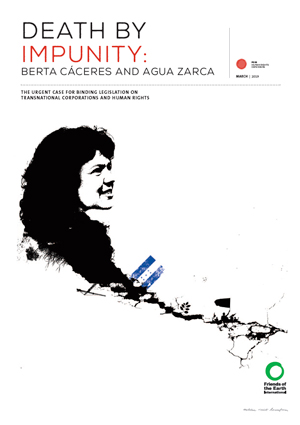
Berta Cáceres was murdered for protesting against the Agua Zarca hydroelectric dam that was threatening a river considered sacred by her community in Honduras. The community faced years of intimidation and military repression and, in total, five members of the community were killed. The company constructing the dam turned out to be directly involved in these killings.
Several international institutions financed the project, including two European financiers: the Dutch Development Finance Institution (FMO) and the Finnish Development Finance Institution (Finnfund). When they were made aware by the community of the human rights violations linked to the construction of the dam, they turned a blind eye and continued their involvement.
The banks claimed that they followed the voluntary United Nations Guiding Principles on Business and Human Rights (UNGP), despite the overwhelming evidence that the project disregarded international standards. After Berta’s murder, the companies were put under strong pressure and, finally, agreed to stop financing the project.
This case clearly shows that, in order to prevent such human rights violations, we need legally binding norms to hold corporations to account for the human rights violations and environmental damages their activities cause. As shown by this case, voluntary commitments clearly don’t work. We are therefore calling for a UN binding treaty on transnational corporations and human rights.
While corporate impunity is left unchecked, human rights and environmental activists continue to be killed protecting nature and human rights in Honduras and worldwide. Ending these human rights abuses means ending impunity for those behind the crimes, said Laura Zúñiga, the youngest daughter of Berta Cáceres.
“Our battle for dignity, truth, and justice does not end here. We will keep fighting – just like Berta Cáceres did.”







